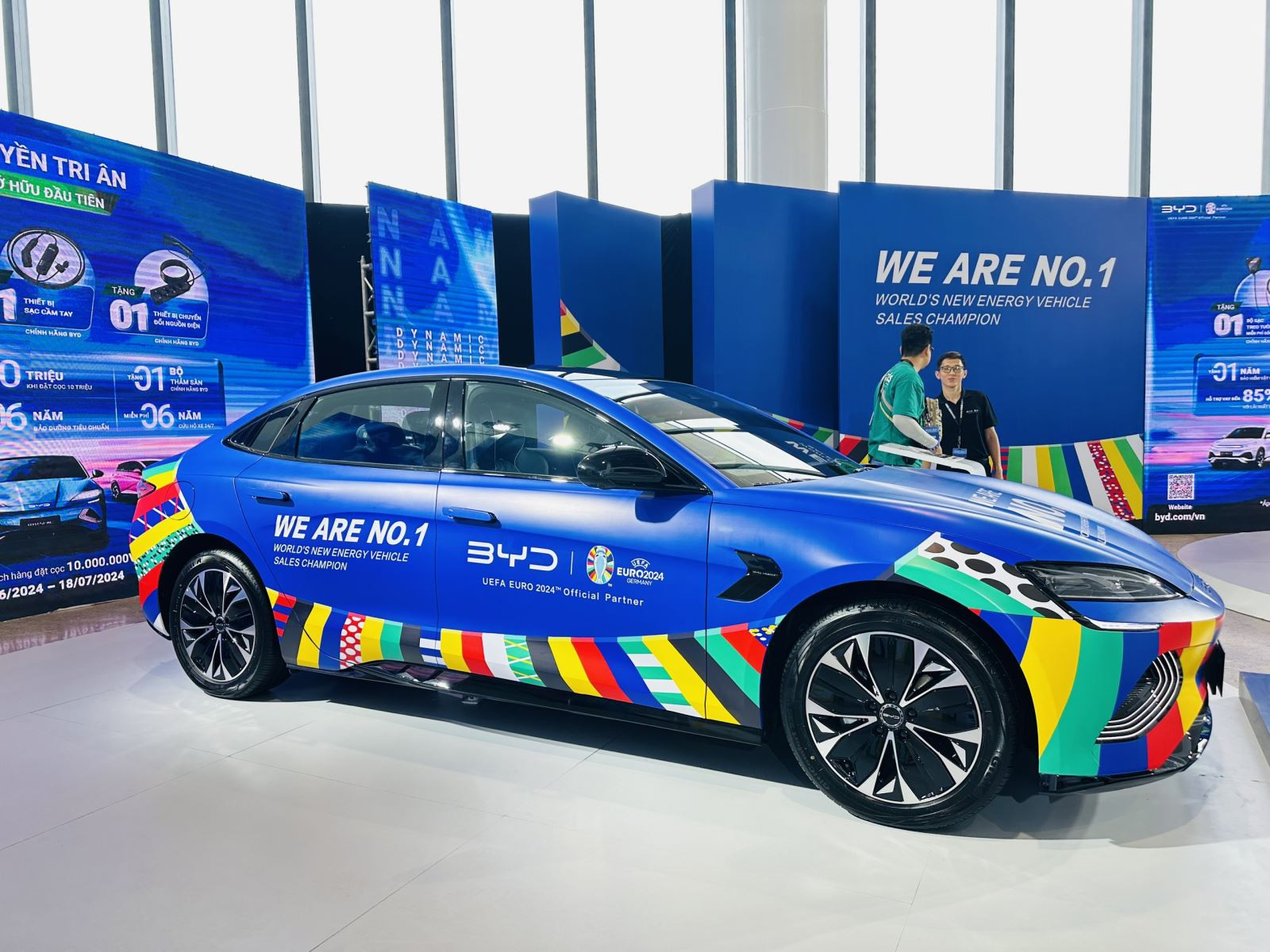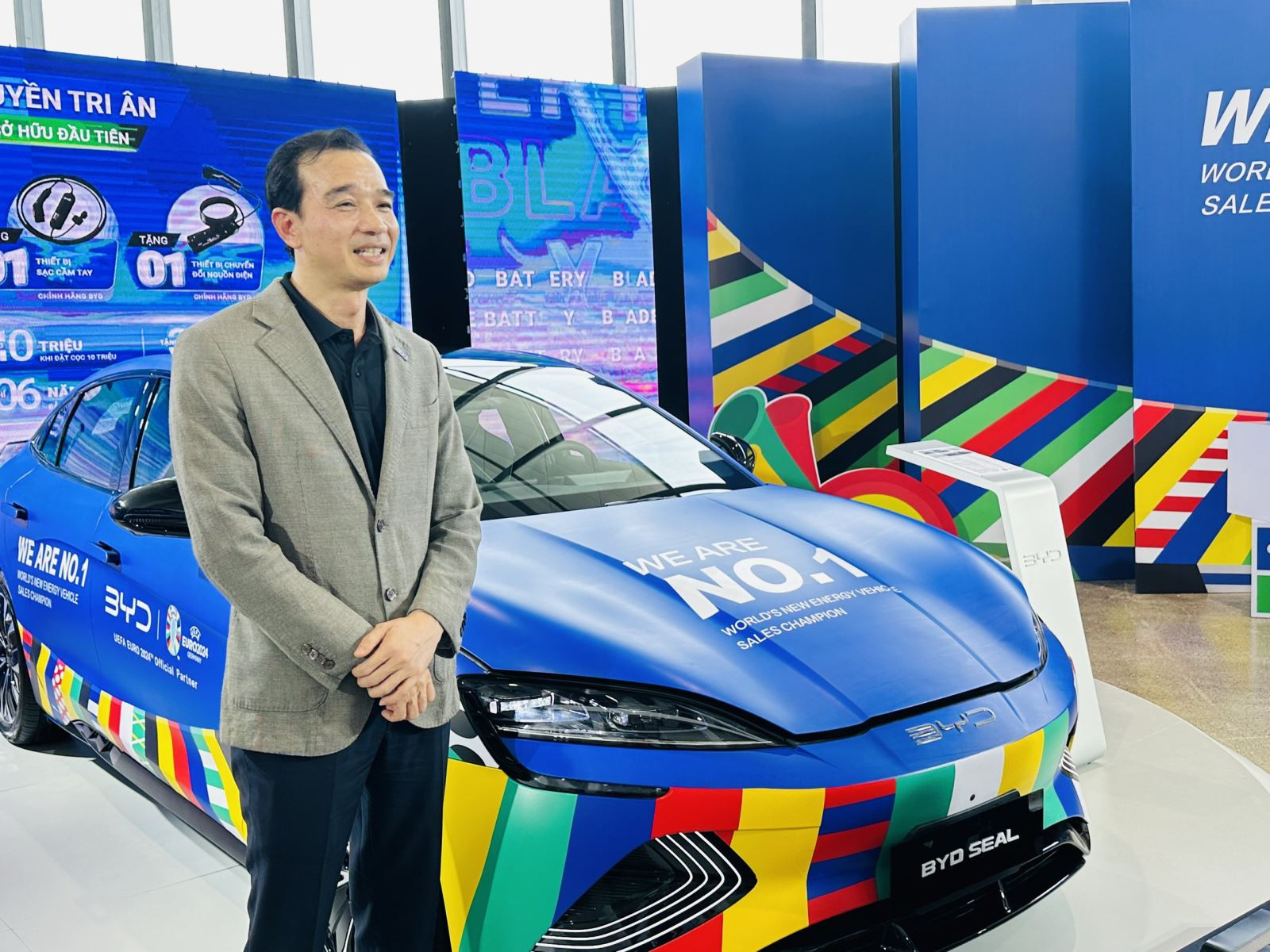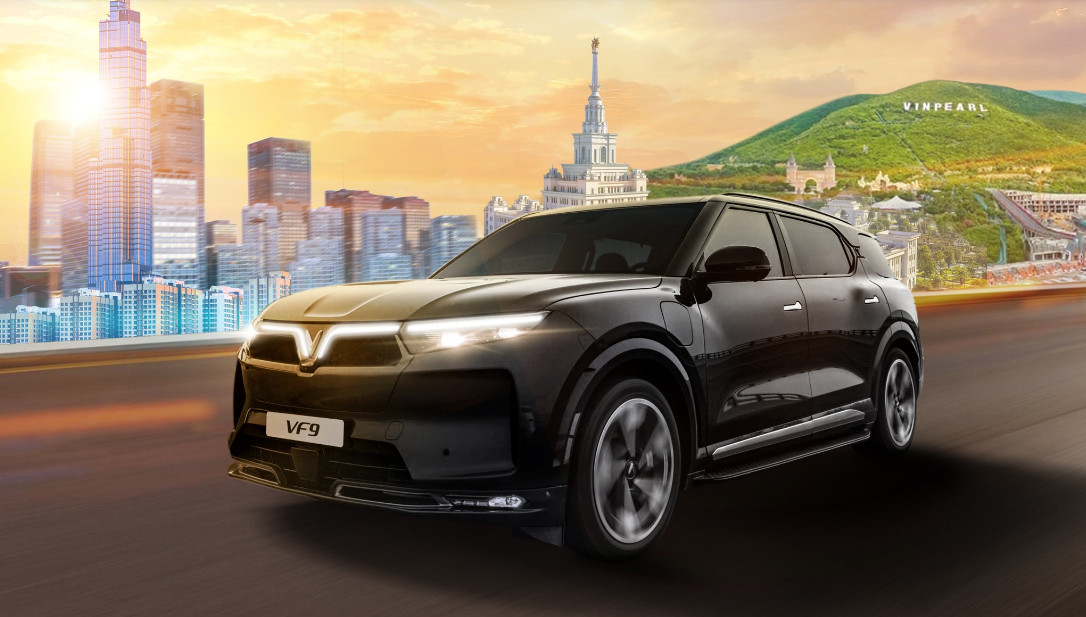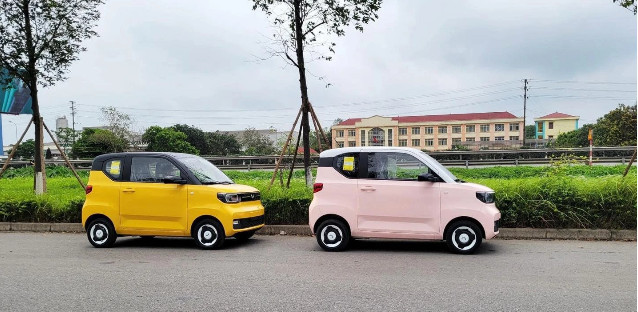The electric car market in Vietnam is being evaluated by research companies as having a lot of potential and room for development.

Electric car market is booming
Currently, many electric car manufacturers from other countries are "looking" at Vietnam, including Chinese car manufacturers that consider Vietnam to have a lot of potential to exploit. Specifically, in early April 2024, Chery Automobile announced that it would be the first Chinese company to build an electric car factory in Vietnam. The $800 million assembly plant, a joint venture with Vietnam's Geleximco Group in Thai Binh province, will have a production capacity of 200,000 vehicles per year after completion in the first quarter of 2026.
Meanwhile, Chinese electric vehicle manufacturer BYD is building a $504 million factory in Thailand to export electric vehicles to Vietnam with a 0% import tax, applicable to all ASEAN economies. At the same time, on June 15, BYD officially launched its presence in the Vietnamese market with a test drive event of three main product lines: BYD SEAL, BYD DOLPHIN and BYD ATTO 3. The appearance of this trio promises to open up more options for customers, enrich the new energy vehicle market as well as contribute to promoting a green lifestyle.

Mr. Vo Minh Luc, CEO of BYD Vietnam, shared: “BYD will officially sell the above three car models in Vietnam this coming August. Although the launch is a bit late in Vietnam, we always consider this an important market with a lot of potential for BYD outside of China. In particular, with Vietnam's commitment to moving towards the goal of zero net emissions by 2050, new energy car models from BYD will contribute to bringing green transportation and clean energy solutions, thereby contributing towards a sustainable future.”
In 2023, BYD's vehicle sales reached 3.02 million units, an increase of 61.9% compared to 2022. This record sales level helped BYD become the NEV brand with the highest sales in the world. Also in this year, BYD's total vehicle exports reached 242,675 units, equivalent to a growth of more than 334% compared to 2022. BYD's goal in the last 6 months of 2024 is to sell about 5,000 vehicles, equivalent to 900 vehicles/month.
Another name from China that also received attention last year was the Haval H6 hybrid, which was launched in the Vietnamese market for the first time with only one engine option. Meanwhile, the controversial Chinese Wuling Hongguang Mini EV, assembled in Vietnam, is currently the cheapest car on the market with a starting price of 239 million VND, the highest-end version costs 279 million VND.

However, the first pure electric car line to come to Vietnam is VinFast. Identifying Vietnam as a key market, in 2023, VinFast built the first domestic electric car factory in Vietnam and officially completed its electric car product line in many segments, rising to occupy the number one position in the Vietnamese market. Many predict that, with the plan to increase annual capacity from 250,000 vehicles to 1 million vehicles, VinFast may later become the leading electric car exporter to the remaining countries in ASEAN. Currently, the company is promoting the latest electric car lines to the market such as: VF5, VF6, VF7, VF8 and VF9.
The luxury electric car segment in Vietnam is equally exciting with the presence of a trio from the Mercedes Benz brand: EQB 250, EQE 500 4MATIC and EQS 500 4MATIC. In addition, the BMW brand also entered the market with the i7, i4 and iX3 products. Volvo Vietnam will also welcome new models with the presence of the EX30 or C40 Recharge.
With hybrid electric and gasoline cars, many famous brands have also appeared in Vietnam such as Honda, Toyota, Hyundai... In particular, Honda has just launched a new generation C-class high-chassis car, CR-V with a new design, many technologies and safety features, for the first time with AWD and hybrid versions.
Toyota has added hybrid warriors Toyota Yaris Cross and Toyota Innova Cross. With hybrid engines on newly launched models, Toyota hopes to open a greener, more civilized consumption trend in modern life. Hyundai has the 7-seat SUV SantaFe, which TC Motor has added a hybrid version with a price of 1.45 billion VND.
In addition, Xpander HEV and Xpander Cross HEV are also dominating the electric car market, helping consumers have more diverse choices.
There is still a lot of room to explore.
In a recent report by HSBC Global Research on “Vietnam At A Glance: The Story of Electric Vehicles”, experts assessed that in recent years, energy transition has become a focus in Asia and Vietnam is no exception. The development of electric vehicles is contributing to the goal of balancing carbon emissions and promoting long-term sustainable economic development resources for Vietnam. Therefore, experts predict that electric motorbikes will be the pioneer in the development of electric vehicles in Vietnam.

However, by the late 2030s, HSBC expects electric motorcycle sales to plateau in Vietnam as the domestic motorcycle market saturates. It estimates that Vietnam’s total annual sales of electric motorcycles and cars could rise from under a million in 2024 to over 2.5 million in 2036.
According to BMI Research, electric vehicle consumption in the automobile industry in Vietnam will record a compound growth rate of up to 26% in the period 2023 - 2032, equivalent to annual consumption reaching 65,000 vehicles in 2032. The Vietnam Automobile Manufacturers Association predicts that by 2040, Vietnam will have 3.5 million electric cars on the road.
With the above predictions and expectations, it shows that there is a lot of room for electric cars to develop in the Vietnamese market. The reason is that Vietnam has more than 100 million people, mainly young people, so the electric car market will be interested and welcomed by young users, especially new technologies and environmental awareness for a sustainable future. However, for the Vietnamese electric car market to explode and green the automobile industry in the future, this also depends on the production of electric batteries and charging stations.
According to SSI Research, the weaknesses of electric vehicles in Vietnam are not only the price issue but also the lack of operating range on a single charge, the lack of charging station infrastructure and the lack of service repair centers. Therefore, in the first half of 2024, the electric car market will still be difficult because buyers are waiting for new models and waiting for real feedback from the "pioneers" who buy electric cars.
To build trust and meet consumer demand, parent company VinFast has partnered with China's Gotion High-Tech to develop a number of LFP (Lithium Iron Phosphate) batteries and build two lithium battery factories in Ha Tinh province, expected to open in the third quarter of 2024. Recently, Vietnam's TMT Motors announced a strategic cooperation agreement with the GM and SAIC-Wuling joint venture to manufacture and distribute Wuling-branded electric vehicles in Vietnam.
However, according to HSBC Global Research, just installing enough electric vehicle charging infrastructure and renewable power generation capacity to meet the forecast of new electric vehicles will require about $12.3 billion in investment and 14 tWh of cumulative energy in the period 2024 - 2040. With such a large investment and energy consumption, taking advantage of mutual charging stations is a problem that many electric car manufacturers are aiming for.
Therefore, when BYD entered Vietnam, it did not focus on building charging stations but rather on improving the quality of electric car experiences. Mr. Vo Minh Luc said that the company will sell additional portable chargers, 7 kW wall chargers, and power converters (all genuine BYD products) when customers buy electric cars. However, if customers deposit money to buy before the electric car is officially sold in Vietnam, they will immediately receive the above 3 sets. In addition, this car company will take advantage of charging stations that are and will be available in Vietnam for charging.
It can be said that Vietnam's journey in successfully converting to electric vehicles, although promising, still faces a number of challenges that need to be addressed. Therefore, many opinions suggest that, in addition to upgrading infrastructure, reducing the cost of electric cars, thereby stimulating the conversion from gasoline cars to electric cars, gradually greening the automobile industry in Vietnam.